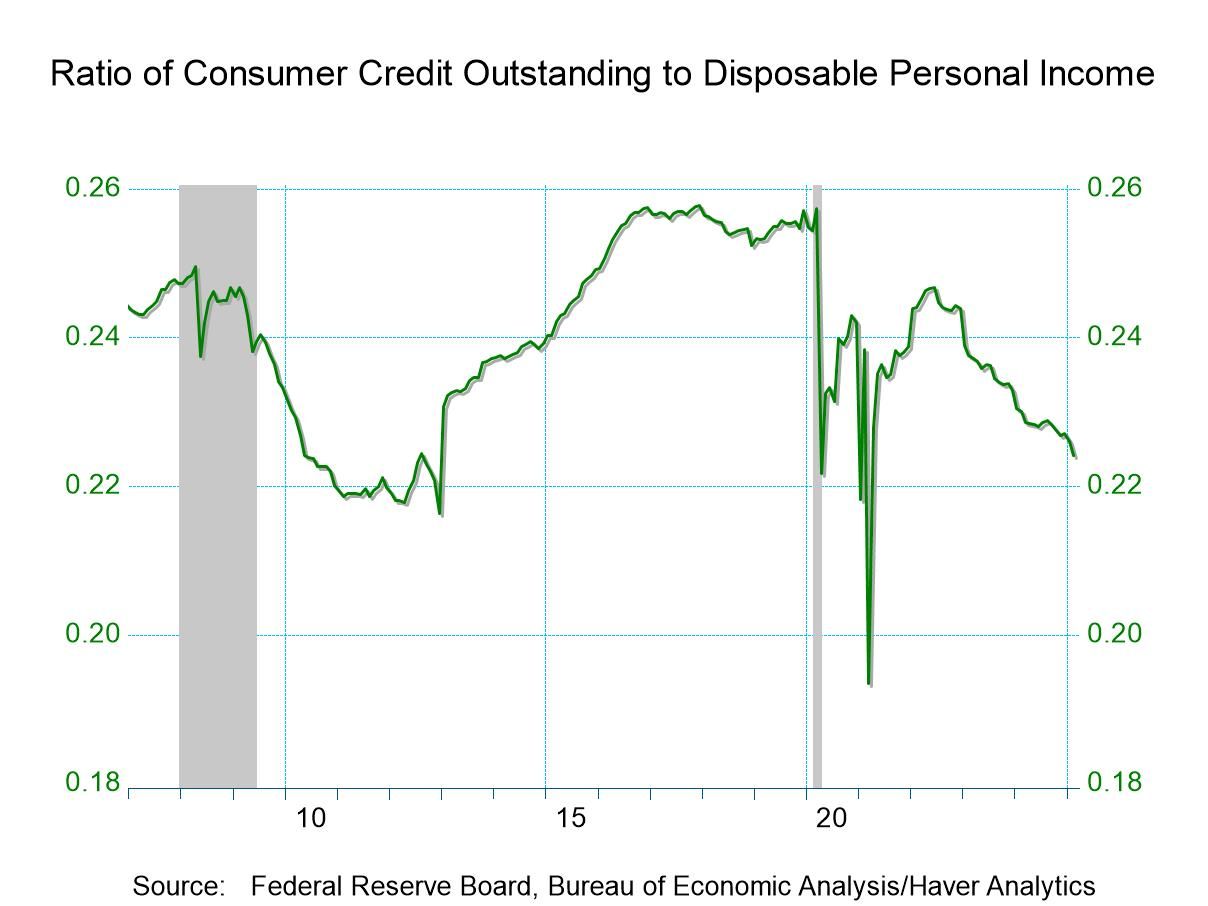U.S. Consumer Credit Slips in February
by:Tom Moeller
|in:Economy in Brief
Summary
- Nonrevolving credit declines slightly.
- Revolving credit edges up.


Consumer credit outstanding eased $0.8 billion (+1.7% y/y) during February after rising $8.9 billion in January. A $15.0 billion rise had been expected in the Action Economics Forecast Survey. As a percentage of disposable personal income, consumer credit was 22.4% in February, compared to 23.0% one year earlier.
Nonrevolving credit outstanding eased $0.9 billion (+1.2% y/y) in February after rising $2.4 billion in January. Nonrevolving credit held by depository institutions declined 9.0% y/y in February. Finance company debt holdings rose 1.2% y/y while credit union holdings eased 2.2% y/y in February. Nonrevolving debt held by the federal government rose 3.4% y/y.
In February, revolving credit, which includes credit cards, edged $0.1 billion higher (3.0% y/y), following a $6.6 billion January rise. Revolving credit outstanding held by depository institutions fell 1.5% y/y. Revolving credit held by finance companies fell 7.9% y/y, while that held by credit unions rose 5.1% y/y.
The consumer credit figures from the Federal Reserve Board are break-adjusted and calculated by Haver Analytics. The breaks in the series in 2005, 2010 and 2015 are the result of the incorporation of data from the Census and the Survey of Finance Companies, as well as changes in the seasonal adjustment methodology. The consumer credit data are available in Haver’s USECON database. The Action Economics forecast figures are contained in the AS1REPNA database.


Tom Moeller
AuthorMore in Author Profile »Prior to joining Haver Analytics in 2000, Mr. Moeller worked as the Economist at Chancellor Capital Management from 1985 to 1999. There, he developed comprehensive economic forecasts and interpreted economic data for equity and fixed income portfolio managers. Also at Chancellor, Mr. Moeller worked as an equity analyst and was responsible for researching and rating companies in the economically sensitive automobile and housing industries for investment in Chancellor’s equity portfolio. Prior to joining Chancellor, Mr. Moeller was an Economist at Citibank from 1979 to 1984. He also analyzed pricing behavior in the metals industry for the Council on Wage and Price Stability in Washington, D.C. In 1999, Mr. Moeller received the award for most accurate forecast from the Forecasters' Club of New York. From 1990 to 1992 he was President of the New York Association for Business Economists. Mr. Moeller earned an M.B.A. in Finance from Fordham University, where he graduated in 1987. He holds a Bachelor of Arts in Economics from George Washington University.
More Economy in Brief
 Global| Feb 05 2026
Global| Feb 05 2026Charts of the Week: Balanced Policy, Resilient Data and AI Narratives
by:Andrew Cates






